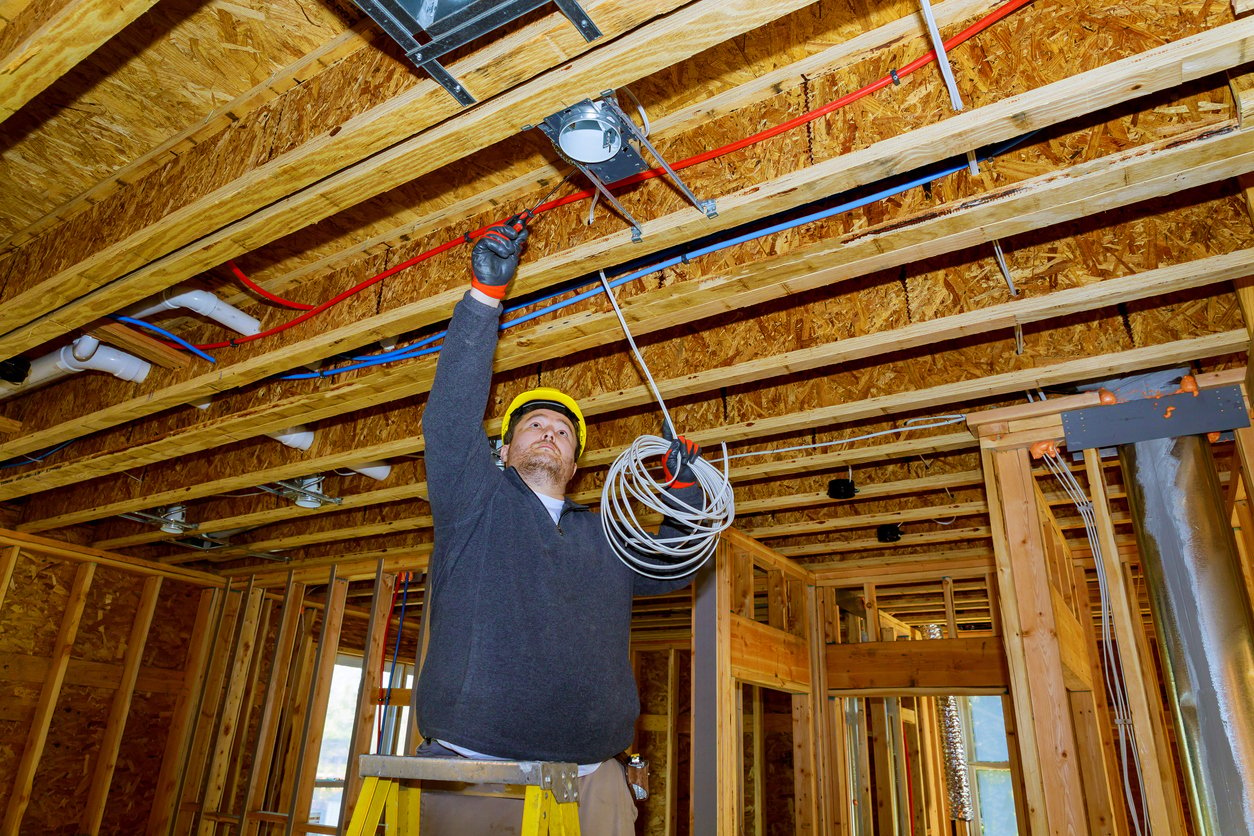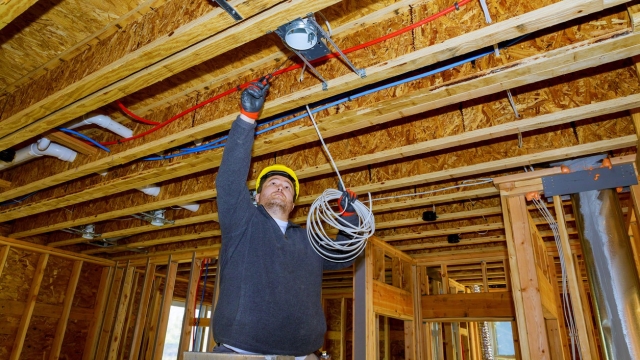
In our modern world, where technology permeates every aspect of our lives, the role of electricians often goes unnoticed yet remains critical. They are the unsung heroes who ensure our homes are not only functional but also safe. The art and skill that electricians possess go far beyond merely connecting wires; it is about understanding the fundamentals of electricity, troubleshooting complex systems, and ensuring that every device we rely on operates smoothly.
As we flip a switch or plug in our devices, we seldom consider the intricate web of knowledge and expertise that allows these actions to happen seamlessly. Electricians are equipped with a unique set of skills that combine technical know-how with hands-on practice, transforming the often intimidating world of electrical systems into something accessible and reliable. Their work not only powers our lives but also has a profound impact on safety and efficiency, making them foundational to the fabric of modern society.
The Role of Electricians in Modern Society
Electricians play a crucial role in the infrastructure of modern society. They are responsible for the installation, maintenance, and repair of electrical systems that power homes, businesses, and industries. From residential wiring to complex industrial setups, electricians ensure that electrical systems function safely and efficiently. Their expertise is essential for keeping the lights on, appliances running, and technology operating smoothly.
In addition to their technical skills, electricians contribute to the overall safety and reliability of electrical systems. They follow strict regulations and codes to prevent hazards such as electrical fires and shocks. By conducting inspections and ensuring compliance with safety standards, electricians protect both people and property. Their work not only enhances convenience but also promotes a safer living environment for everyone.
The demand for electricians continues to grow as technology advances and the world becomes more reliant on electricity. With the rise of renewable energy sources and smart home technology, electricians are adapting to new challenges and opportunities. They are at the forefront of innovations in energy efficiency and sustainability, making their role even more vital in addressing contemporary issues such as climate change and resource conservation.
Essential Skills and Training for Electricians
To become a successful electrician, a blend of technical skills, problem-solving abilities, and safety knowledge is essential. Electricians must have a strong understanding of electrical systems, including wiring, circuits, and maintenance procedures. They should be proficient in reading and interpreting blueprints and technical diagrams, which are crucial for installing and repairing electrical systems correctly. Attention to detail is vital, as small mistakes can lead to significant issues or hazards.
Training for electricians typically begins with a formal apprenticeship, which combines on-the-job training with classroom instruction. This apprenticeship can last several years, during which aspiring electricians learn from experienced professionals. They develop hands-on skills through practical experience while also studying electrical theory, local codes, and safety regulations. Some may pursue additional certifications or specializations to enhance their expertise, which can improve job prospects and earning potential.
Safety is a paramount concern in the electrical field. Electricians must be well-versed in safety protocols and best practices to protect themselves and their clients from electrical hazards. This includes knowledge of personal protective equipment, safe handling of tools and materials, and emergency response procedures. Continuous education is also important, as technological advancements and changes in regulations require electricians to stay updated on the latest developments in the industry.
Electricity Safety: A Critical Concern
Electricity is an essential part of modern life, but it also poses significant risks if not handled properly. Electricians play a vital role in ensuring that electrical systems are installed, maintained, and repaired according to safety standards. The dangers associated with electricity include shock hazards, fire risks, and equipment failure, all of which can lead to serious injury or property damage. By prioritizing safety, electricians protect both themselves and their clients from potential disasters.
Training and certification are crucial components of an electrician’s education, equipping them with the knowledge to identify hazards and implement safety protocols. This includes understanding the materials they work with and the functions of circuits, as well as being aware of the potential dangers involved in high-voltage environments. Regular safety inspections and adherence to regulations are essential practices that electricians employ to minimize risks.
Montclair Electrician
Homeowners also play a vital role in electricity safety by being aware of the signs of electrical problems, such as flickering lights or unusual smells. It is important to address these issues promptly and consult a qualified electrician to handle repairs or upgrades. By fostering a culture of awareness and responsibility around electricity safety, both electricians and the public can significantly reduce the chances of accidents and ensure that electrical systems operate safely and efficiently.
Emerging Technologies in Electrical Work
The world of electrical work is rapidly evolving with the advent of new technologies that are reshaping the way electricians operate. Smart home systems are at the forefront, allowing electricians to install and configure devices that enhance convenience and energy efficiency for homeowners. These systems integrate various appliances and lighting into a cohesive network managed via smartphones or voice-activated assistants, making the electrician’s role even more crucial in ensuring proper installation and compatibility.
Another significant development is the rise of renewable energy technologies, particularly solar power. Electricians now play a key role in installing and maintaining solar panel systems, which are becoming increasingly popular as more people seek sustainable energy solutions. This transition not only requires a deep understanding of electrical systems but also knowledge of local regulations and incentive programs, further diversifying the skill set required of modern electricians.
Finally, the implementation of advanced diagnostic tools and software is enhancing the efficiency and accuracy of electrical work. Instruments such as thermal imaging cameras and digital multimeters allow electricians to quickly diagnose issues and assess the performance of electrical systems. This technology reduces downtime and minimizes the risk of electrical failures, ultimately leading to safer and more cost-effective electrical solutions for both residential and commercial properties.
The Future of the Electrical Trade
As technology continues to evolve, the future of the electrical trade presents exciting opportunities and challenges for electricians. The rise of smart homes and IoT devices is transforming the way electrical systems are designed and installed. Electricians are increasingly required to integrate advanced systems that connect appliances, lighting, and security devices, creating a seamless and automated living environment. This trend not only enhances convenience for homeowners but also demands that electricians stay updated with the latest technology and training.
Sustainability is another significant factor shaping the future of the electrical trade. With the growing emphasis on renewable energy sources, electricians will play a crucial role in the installation and maintenance of solar panels, wind turbines, and energy-efficient systems. As more individuals and businesses aim to reduce their carbon footprints, electricians will need to adapt their skills to incorporate eco-friendly practices and technologies. This shift towards sustainability will not only provide electricians with new job opportunities but also position them as key players in the green economy.
The demand for skilled electricians is expected to increase, driven by urban development and infrastructure projects. As cities expand and new technologies become commonplace, the need for qualified professionals who can install, repair, and maintain complex electrical systems will soar. Electricians who embrace ongoing education and specialize in emerging fields such as automation or renewable energy will find themselves in high demand. The future looks bright for those in the electrical trade, as innovation and sustainable practices reshape the industry landscape.



